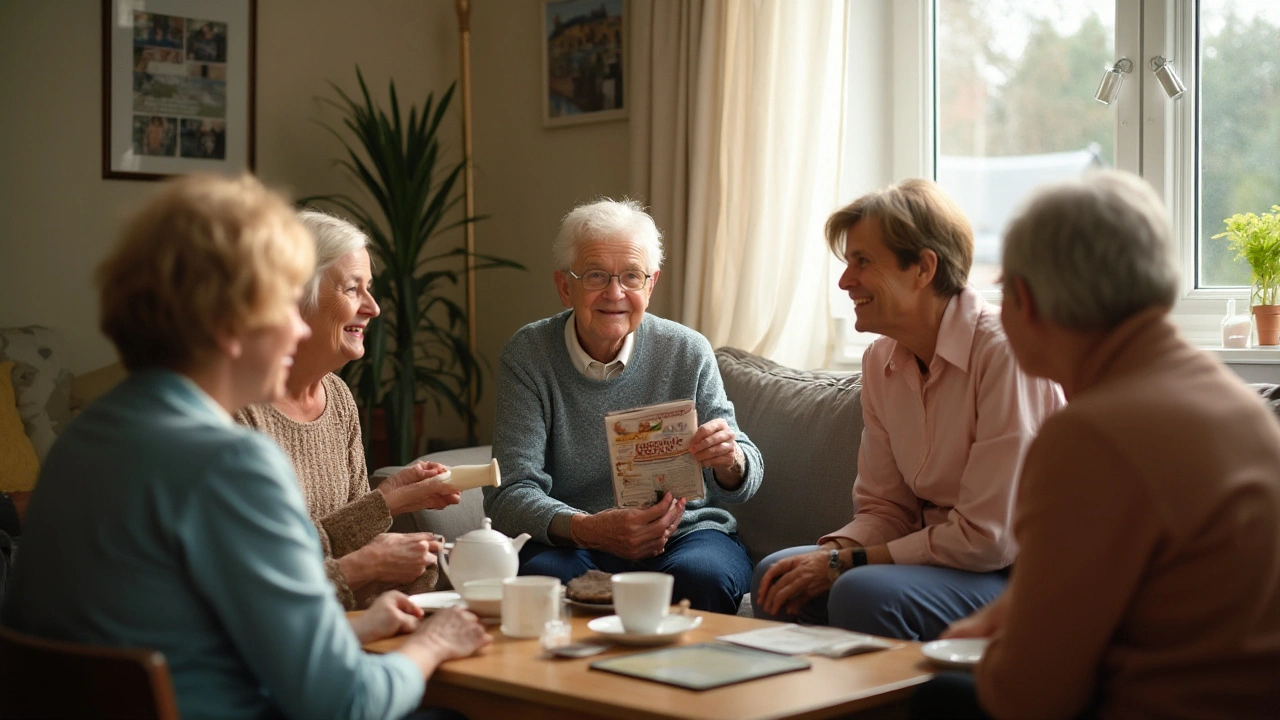Support Groups for Pulmonary Arterial Hypertension — Practical Help from Sep 2024
This archive highlights our September 2024 post about using support groups to manage pulmonary arterial hypertension (PAH). If you or a loved one are living with PAH, the right group can change how you cope day-to-day. Below you’ll find straight, useful tips on why groups help, where to find them, and how to get real value from meetings.
Why a support group matters
Living with PAH brings medical, emotional, and practical challenges. A support group gives you a place to share questions and learn from people who actually get it. You’ll hear about treatment side effects, breathing strategies, dealing with fatigue, travel tips for medical appointments, and ways caregivers can help without burning out. It’s not therapy, but it’s a reliable space for real-life solutions and emotional backup.
Groups also help you spot red flags faster. When others describe changes in symptoms or test results, you can compare and decide whether to call your clinic sooner. That practical, experience-driven advice often complements what doctors tell you during short appointments.
Where to find the right group and how to use it
Start local: ask your PAH clinic, cardiologist, or pulmonologist for recommendations. Hospitals and specialty clinics often run patient groups or can connect you with community resources. If nothing is nearby, online groups are solid alternatives—look for moderated forums tied to recognized organizations like national heart or lung foundations.
Here are simple ways to pick and use a group well:
- Check moderation: Prefer groups with health professionals or experienced moderators who keep discussions accurate and safe.
- Look for relevance: Choose groups focused on PAH, not just general lung disease—advice will be more on point.
- Set goals: Decide what you want: tips for daily life, emotional support, or practical help navigating care. Tell the group—members will respond more helpfully.
- Protect privacy: Don’t share full medical records or personal IDs. Use first names and general details when possible.
- Be active, then picky: Try a few meetings. If a group drains you more than helps, leave—it’s okay to switch.
Caregivers: join too. You’ll learn how to assist with medication schedules, communicate with clinicians, and manage your own stress. Groups can point you to respite services and local practical help.
If you’re seeking something immediate, check major PAH organizations’ event pages and verified Facebook groups this month. Our September post collected a few trusted starting points and tips from patients who have used groups to improve daily life and care coordination. If you want, we can share those resource links or suggest groups based on your location and needs.
Want help finding a suitable group now? Tell us if you prefer in-person or online, and whether you’re a patient or caregiver—we’ll point you in the right direction.
Effective Support Groups for Managing Pulmonary Arterial Hypertension
Support groups play a crucial role in helping individuals cope with Pulmonary Arterial Hypertension (PAH). These groups offer emotional support, shared experiences, and practical advice to manage the condition’s complexities. By connecting with others facing similar challenges, patients often find renewed strength and hope.

